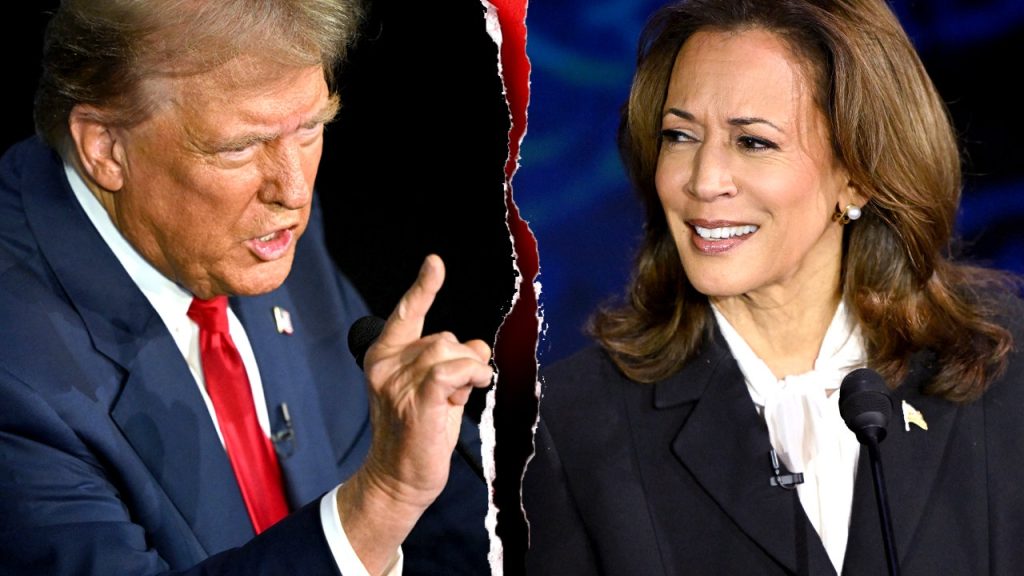Economists have expressed concern over the economic proposals put forward by both former President Donald Trump and Vice President Kamala Harris, stating that they would further increase the nation’s already massive budget deficit. Neither candidate has provided detailed plans to address the deficit in their economic platforms, with Trump’s policies focusing on tax cuts and Harris proposing increased taxes on the wealthy and corporations as a solution. Experts have criticized both candidates for their lack of focus on fiscal responsibility and urged them to address the deficit more seriously.
Trump’s economic proposals include extending tax cuts, reducing the corporate tax rate, and repealing green energy tax credits. While he plans to generate revenue through tariffs, economists argue that it will not be enough to balance out the lost revenues from his tax cuts and other policies. In contrast, Heritage Foundation economist Richard Stern believes that government spending, rather than tax cuts, is the primary cause of the growing budget deficit. He argues that tax cuts can stimulate economic growth, while increased government spending stifles growth and exacerbates deficits.
Harris’s economic platform includes various proposals such as housing subsidies, tax credits for the manufacturing sector, and support for increasing government spending on child care needs. However, the Tax Foundation estimates that her policies would result in a significant increase in the deficit over ten years. Economists warn that a growing deficit can lead to higher interest rates, reduced creditworthiness for the country, and limited fiscal space to respond to emergencies such as pandemics or national security crises.
The Biden-Harris administration’s fiscal year 2024 budget has been criticized for proposing historically high levels of spending, surpassing the half-century average by 18% and adding $82.2 trillion in spending over ten years. While Harris has garnered support from left-leaning economists and former policymakers, critics argue that her budgeting approach would exacerbate the national debt. In comparison, Trump’s campaign has accused Harris of proposing a $4.9 trillion tax hike, which they claim would burden American families with additional financial strain.
As the 2024 election approaches, polls show a close race between Trump and Harris on economic issues, with voters expressing more confidence in Trump but also showing increased support for Harris in recent surveys. Nevertheless, both candidates must address concerns about the growing budget deficit and provide detailed plans to ensure fiscal responsibility going forward. Experts emphasize the importance of sustainable economic policies that balance tax cuts and spending to promote growth while addressing the nation’s financial challenges.













